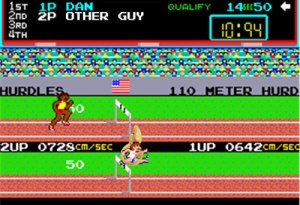This week we have a guest blog written by my good friend Chris Hahn. I asked Chris to talk about the study of music from the perspective of an entrepreneur.
 The light just burned out in the room in which I do so much of my creative work at home. As a result, I’ve been forced to turn on a much less powerful, non-fluorescent, environmentally crushing, incandescent light. At first I was enraged by this change, I can’t see anything properly, not my practice piano’s keys, nor my computer’s keyboard, nor the stuff on the floor that I trip over now from time to time. I have to admit to myself that I’m wasting so much more energy for so much less light. And yet, something has changed. When I play the piano something feels softer. I can move slower. I don’t have to think as much about the mistakes I was making before. Mozart is closer somehow. The space is new.
The light just burned out in the room in which I do so much of my creative work at home. As a result, I’ve been forced to turn on a much less powerful, non-fluorescent, environmentally crushing, incandescent light. At first I was enraged by this change, I can’t see anything properly, not my practice piano’s keys, nor my computer’s keyboard, nor the stuff on the floor that I trip over now from time to time. I have to admit to myself that I’m wasting so much more energy for so much less light. And yet, something has changed. When I play the piano something feels softer. I can move slower. I don’t have to think as much about the mistakes I was making before. Mozart is closer somehow. The space is new.
Outside of this light-burned-out creative space I have done much over the last fifteen years. I worked for Microsoft for a while, worked for various startup companies, and founded, built up, and sold a software company with some really incredible people. I have spent my entire life focused on technology, writing software, designing systems, and solving problems that improve people’s lives.
About a year ago, I decided to start studying classical piano with a teacher who has helped me tremendously. Before that, I tried to teach myself piano for two years (big mistake, find a teacher/mentor!). So what made me decide to embark on the journey of learning piano at all? Truthfully, I was influenced by reading Eric Kandel’s book “In Search of Memory“. In this book, Kandel opened up my eyes to the idea that the human brain is a lot more plastic than I had historically believed. This made me think that it’s never too late to pick up something new. I had always wanted to be a great musician, but I was assuming that I was past the right time to study, I was too old. In a moment of potentially hubristic clarity I said to myself, “I’m going to play every day, for 10 years, study hard, and at the end of that, I will be playing with an orchestra.” Knowing that my brain could still change in radical ways, and knowing that neurons learn and grow slowly, over time, with mixtures of repetition and breaks between repetition, I figured it was only a matter of time and dedication. When I combined that thinking with my experience in business, where failure is the norm, and perseverance is the differentiator between those who win and those who don’t, I felt that this choice to become a pianist at a later age wasn’t stupid, it was entirely logical.
What I have learned up to now is that I continue to surprise myself in studying piano. Furthermore, studying has had benefits in other aspects of my life. For one, using the piano has helped me to find a way to slow down and focus more. This enhances my ability to work with people and to write better software. It has enhanced my knowledge of history and humanity. I was surprised to learn that Franz Liszt was pretty much the Justin Bieber of his day.
I started reading Mozart’s letters where I learned about his sister Nannerl. I learned how Nannerl was a talented composer crushed by the treatment of women at the time. It is a tragedy to think that there was a 2nd Mozart, and all of humanity has lost something for its ignorance.
I have been surprised by how much I can play only one real year into my studies. Things like Chopin’s Nocturn No 20, Mozart’s Fantasie KV 475, or Franz Liszt’s Libestraum No 3 all come from memory now, proving to me that my brain is capable of changing in remarkable ways given time and effort.
I suppose the moral of this whole story is that, when the light goes out in your creative space, it is helpful not to think of it as a setback. Truly “talented” people pick themselves up from this kind of thing and find another way. They trust that failure isn’t an exception it is the rule. And they know, consciously or instinctively, that achieving anything of merit requires nothing more than time, effort, and desire.
 Chris Hahn is a technology executive at IMS Health/Appature building applications using huge amounts of data for customers in the healthcare industry.
Chris Hahn is a technology executive at IMS Health/Appature building applications using huge amounts of data for customers in the healthcare industry.




